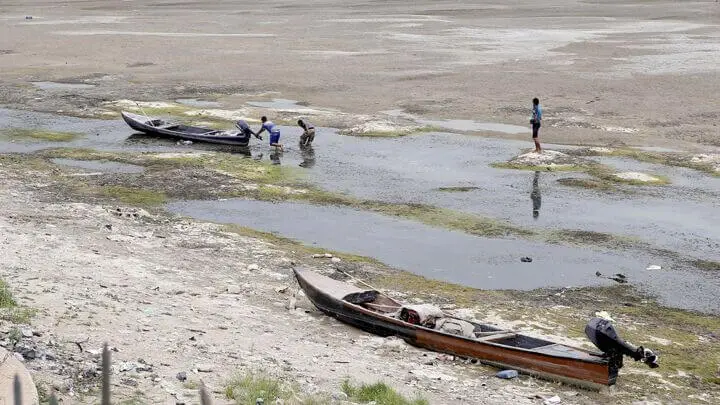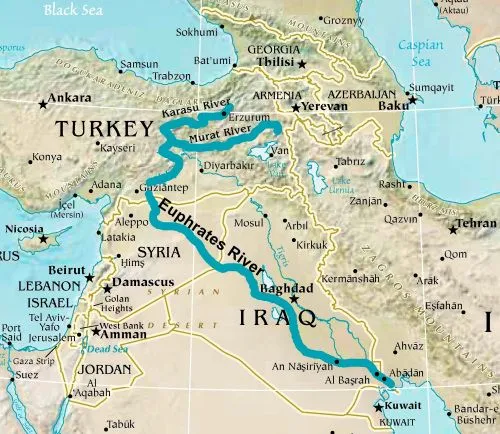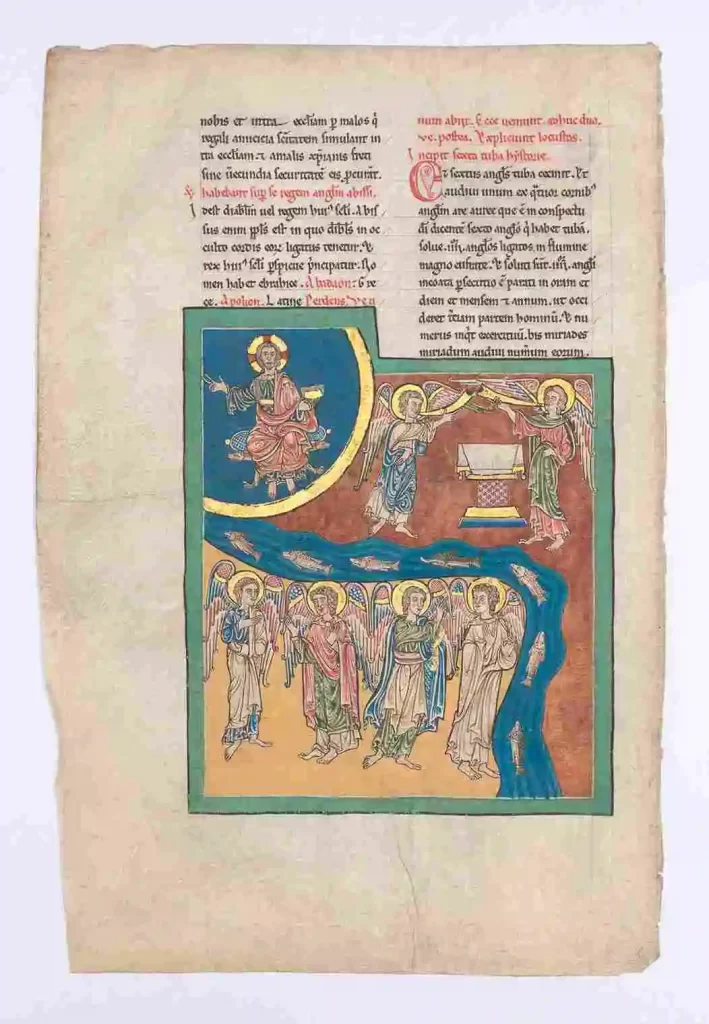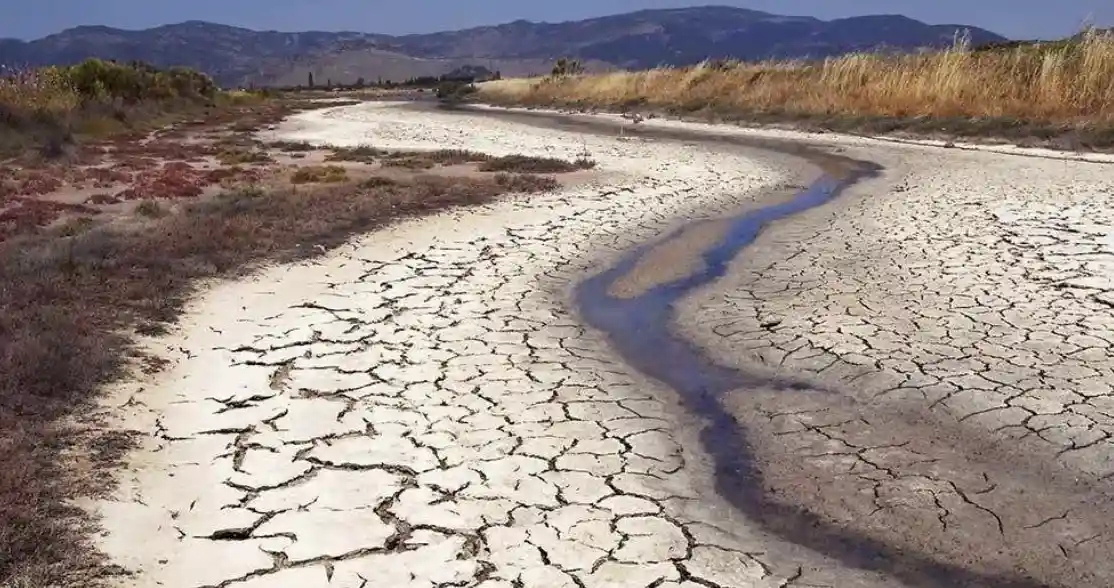Euphrates River Drying Up: 8 Factors, Location, and Scriptural Revelations
Introduction
The Euphrates River, once a lifeblood of ancient civilizations, is facing a critical challenge as it undergoes a concerning trend of drying up. This environmental shift poses far-reaching implications for the ecosystems and communities that depend on its waters. Explore the intricate web of factors contributing to the Euphrates River drying up and the profound impacts on ecosystems and communities.

Factors
Here are factors affecting the dryness of River Euphrates:
Dams and Water Management
The construction of dams along the river for irrigation, hydroelectric power, and water storage has altered the natural flow, reducing the volume of water reaching downstream areas.
Climate Change
Shifts in climate patterns, including increased temperatures and changes in precipitation, contribute to reduced snowmelt and altered water availability, impacting the overall river flow.
Upstream Water Usage
Increased agricultural and industrial water extraction upstream reduces the amount of water flowing downstream, affecting the river’s overall volume.
Deforestation
The clearing of forests in the river’s watershed can lead to soil erosion and changes in runoff patterns, affecting the river’s water supply.
Over-Extraction of Groundwater
Excessive pumping of groundwater from aquifers connected to the Euphrates can reduce the flow of water into the river.
Political and Regional Tensions
The geopolitical situation in the region has led to disputes over water resources, affecting the management and equitable distribution of water from the Euphrates.
Population Growth
The increasing population in the region puts additional stress on water resources for domestic, agricultural, and industrial purposes.
Reduced Snowpack
The melting of snow in the river’s headwaters contributes to its flow. Changes in snowpack dynamics due to climate change can impact the river’s water supply.
Understanding and addressing these interconnected factors are crucial for developing sustainable water management strategies to mitigate the drying of the Euphrates River and ensure the well-being of ecosystems and communities that depend on it.
Euphrates River Location
Trace the sinuous journey of the Euphrates River on the map, flowing from its headwaters in eastern Turkey through Syria and Iraq. Observe its course as it weaves through diverse landscapes, influencing the history and cultures of ancient civilizations. Marvel at the strategic importance of this lifeline, depicted by its meandering path on the map, and appreciate the geopolitical complexities surrounding its waters.

Euphrates River Drying up Scripture
The concept of the Euphrates River drying up is primarily mentioned in Christian and Islamic eschatological prophecies, each within its respective religious text.
Euphrates River Bible
In the context of religious or apocalyptic beliefs, the Euphrates River is mentioned in the Book of Revelation in the Bible, specifically in Revelation 9:14-16. The passage describes the release of four angels that had been bound at the Euphrates River, and upon their release, they led an army of 200 million horsemen, causing significant destruction.
The Euphrates River is mentioned in the Bible, particularly in the Book of Revelation. In Revelation 16:12 (New International Version), it is stated:
“The sixth angel poured out his bowl on the great river Euphrates, and its water was dried up to prepare the way for the kings from the East.”
The verses are often interpreted symbolically, and different religious traditions may offer varying interpretations. Some see these passages as prophetic and symbolic of future events, while others view them metaphorically or allegorically.
Interpretations of this passage vary among different religious traditions. In some Christian eschatological interpretations, this verse is seen as a symbolic or prophetic description of apocalyptic events, with the drying up of the Euphrates River being a part of the divine plan.
It’s important to note that interpretations of religious texts can vary widely, and different individuals or religious groups may have distinct perspectives on the meaning of these passages in the Book of Revelation.

Euphrates River Drying up and Islam
In Islamic eschatology, there are references to the Euphrates River and its drying up as a sign of the approach of the Day of Judgment. The concept is derived from various hadiths (sayings and actions of Prophet Muhammad) that discuss events and signs leading to the end times.
One well-known hadith, found in Sahih Muslim, describes the Euphrates River and the uncovering of a mountain of gold that leads to disputes among people. It is then mentioned that the Euphrates will “disclose a mountain of gold” when people dig for it, and a group of people will fight over it. Subsequently, the river’s water will dry up, and the events will unfold as part of the eschatological narrative.
It’s important to note that interpretations of these hadiths and their application to current events are varied within the Islamic scholarly tradition. While some see these as literal predictions, others interpret them more metaphorically or symbolically, emphasizing broader spiritual and moral lessons rather than specific future events.
As with any religious interpretation, views may differ among scholars and individuals, and the understanding of eschatological signs, including the drying up of the Euphrates River, is subject to diverse perspectives within the Islamic community.
Summary
In conclusion, the phenomenon of the Euphrates River potentially drying up is a complex issue influenced by various factors, spanning environmental, human, and geopolitical dimensions. Factors such as the construction of dams, climate change, water management practices, and regional disputes have contributed to concerns about reduced water flow along the Euphrates.
Geographically, the Euphrates River holds immense historical and cultural significance, flowing through Turkey, Syria, and Iraq. Its waters have sustained civilizations for millennia, and its presence is intricately woven into the fabric of the region’s history.






